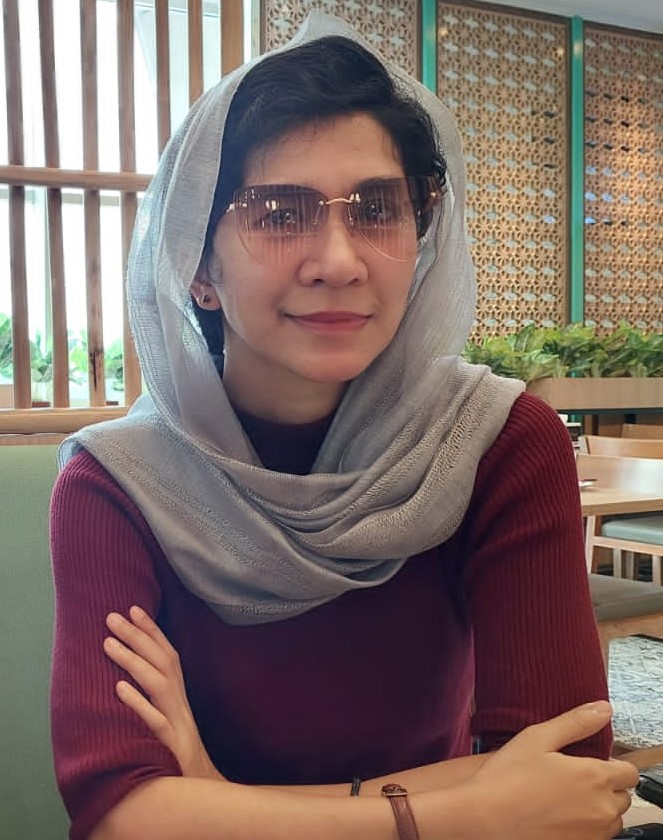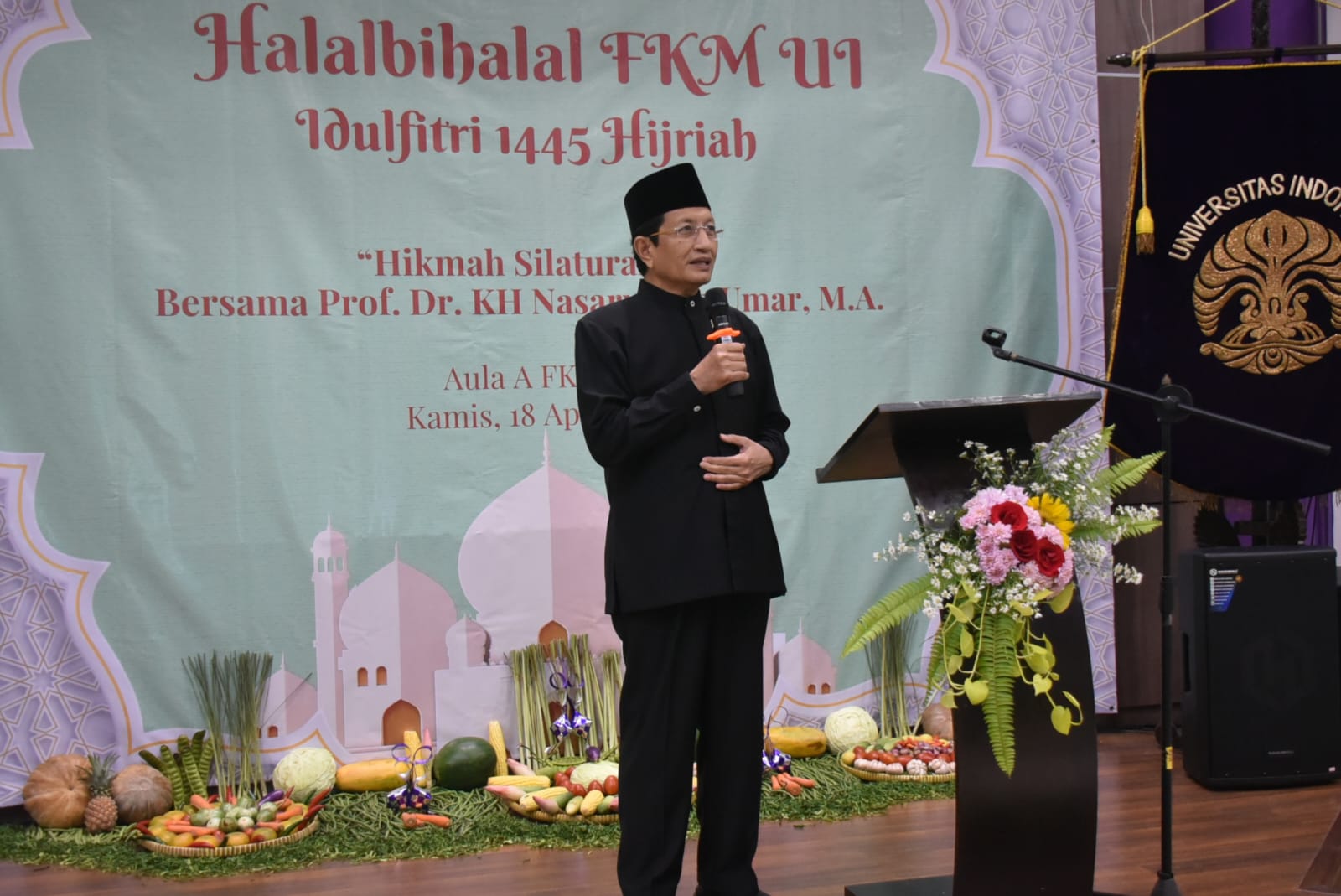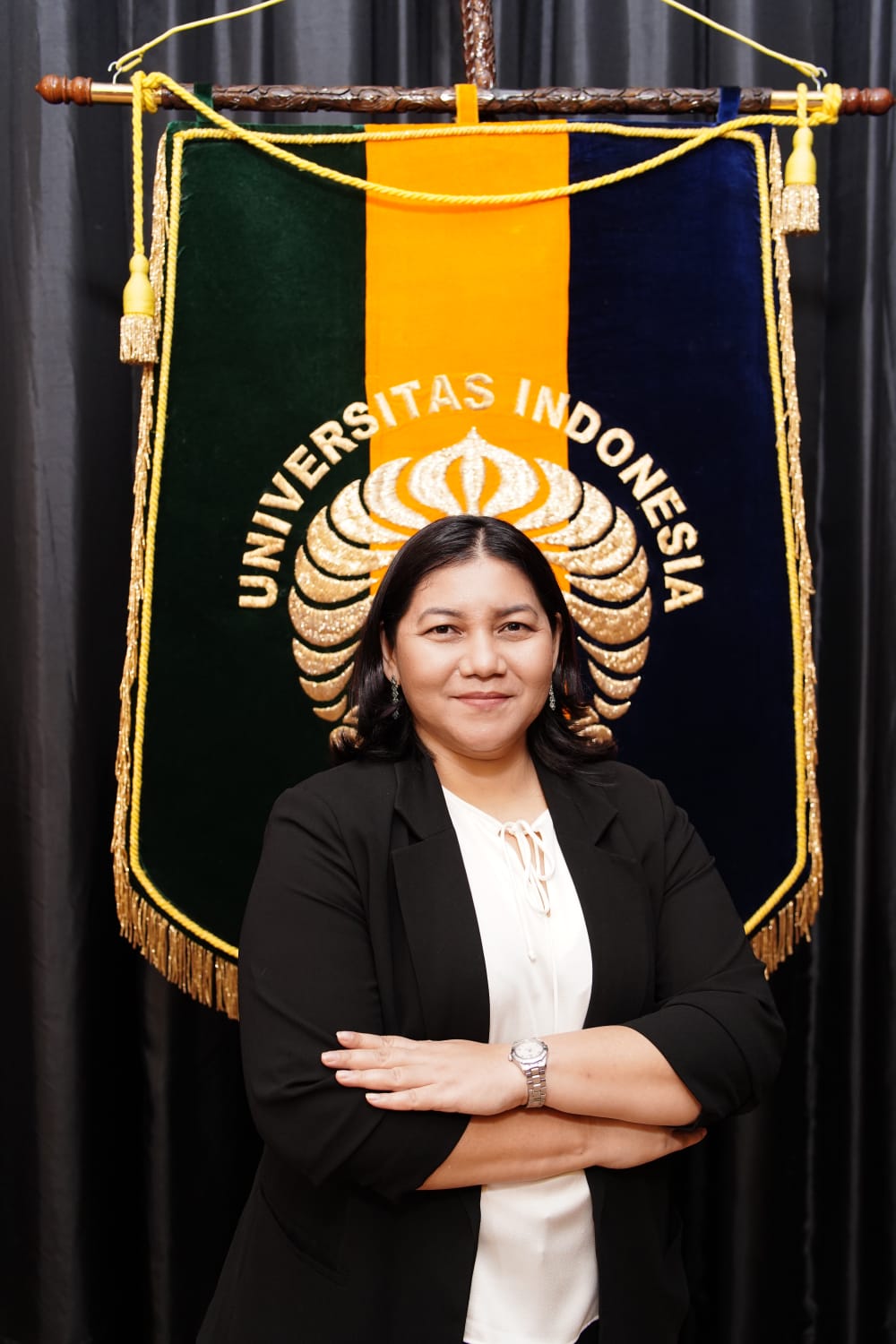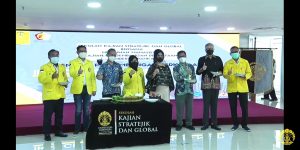
“The development of the National Capital City (IKN) can be a momentum for the development of innovation which can later be realized in the new National Capital City area. We make this National Capital City a national mission for innovation, such as public transportation. Perform synergies, through research between fields and invite related industries to work together on patents for the creation of these innovations. Taking this opportunity to collaborate with academics to make better National Capital City,” said Lecturer of Urban Development Studies (KPP) School of Strategic and Global Studies, Universitas Indonesia (SKSG UI) and Professor of Architectural Sciences, Faculty of Engineering UI, Prof. Ir. Gunawan Tjahjono, M.Arch., Ph.D., in a seminar entitled “IKN (National Capital City), City of Future. What’s Next?” on Thursday (31/3).
National Capital City (IKN) Indonesia is officially named Nusantara (since 2022), because it is a conceptualization of islands united by the sea located in North Penajam Paser, East Kalimantan. The Director of SKSG UI, Athor Subroto, Ph.D., revealed, “The dynamics occur because National Capital City is already in a law (UU No. 3 of 2022 concerning the State Capital). It can be said that the new national capital city is a certainty for the people of Indonesia. National Capital City Nusantara will be an example of how the city should be developed.”
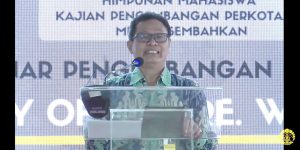
National Capital City Nusantara is expected to reflect a sustainable city that has a social, economic, and environmental context. Head of the SKSG UI Urban Development Study Program (KPP), Dr. Chotib Hasan, said that the main reason for the transfer of National Capital City to East Kalimantan was economic equity which had an impact on the even distribution of the population. In addition, the clean water crisis and land conversion from agriculture to non-agriculture on Java Island are also the ecological aspects behind the movement of the National Capital City.
There are five priority programs of the government at this time, namely the development of human resources (HR), continuing infrastructure development, simplifying all forms of regulation, simplifying the bureaucracy on a large scale, and transforming the economy. These programs that are closely related to the development of economic zones in the new national capital city involving entrepreneurs.

Deputy Chairperson of the Indonesian Chamber of Commerce and Industry for Agrarian, Spatial and Regional Affairs, Sanny Iskandar, said, “In the development of economic zones, since the administration of President Joko Widodo with the Nawacita program, which has continued with the Economic Transformation program, particularly related to the Job Creation Act, economic zones include in one of the clusters that are encouraged to accelerate the industrialization process. Without the development of economic zones, the government center in the new National Capital City is feared to be dry.”
Furthermore, Sanny mentioned several hopes from business actors in the development of the new national capital city. First, political certainty (political and legal interests). The national capital city transfer program must be sustainable and consistent because it involves a huge investment. Second, the clarity of the risk burden in the National Capital City project. Investors with a return on investment offered must be balanced. In addition, there is a need for a guarantee assistance scheme and certainty of support for the smooth running of the entire project. Flexibility of project management, both in terms of costs and resources, as well as priority opportunities are also needed in carrying out National Capital City development.
Representative of the Director General of Human Settlements at the PUPR Ministry, Bobby Ali Azhari, S.T, M.Sc, revealed that the National Capital City design, with the theme “Nagara Rimba Nusantara” created by Sofian Sibarani, brought three visions for the new National Capital City. It is National Capital City as a reflection of the nation’s identity; National Capital City as economic, social, and environmental sustainability; and National Capital City as a smart, modern and international city. National Capital City must also carry the smart forest city concept because if you look at the big cities in the world, they have high-tech city facilities.
Moreover, Kalimantan is the lungs of Indonesia and even the world. The existence of this forest makes the smart forest city concept interesting to be realized. To achieve a future smart forest city, there are several strategies or indicators that must be achieved in the context of development. First, the welfare of the community as seen from balanced housing and adequate public spaces. Second, the ecology and preservation of the natural environment include green open areas and the conservation of local Kalimantan and Indonesian plants.
In addition, regional connectivity or transportation must also be considered. Regional infrastructure that includes clean water supply, waste management, and the use of renewable energy must also be regulated. Lastly, related to ICT infrastructure, data center facilities and wifiin public areas are also provided.
The seminar entitled “IKN (National Capital City) , City of Future. What’s Next?” is an event held by School of Strategic and Global Studies, Universitas IndonesiaI together with the Urban Development Studies UI Student Association in commemoration of the 21st Anniversary of Urban Development Studies, School of Strategic and Global Studies, Universitas Indonesia UI. In addition to enriching students’ knowledge about the discussion of National Capital City directly from the speakers, this seminar also aims to provide opportunities for students of the School of Strategic and Global Studies UI Urban Development Study Program to be able to contribute from an academic perspective in the discussion of the topic of National Capital Relocation (IKN) which is currently being actively discussed in Indonesia.
This seminar was held offline at the IASTH Building, 5th Floor, School of Strategic and Global Studies UI Jakarta and broadcast online via Zoom and the School of Strategic and Global Studies UI Youtube channel. The forum, which presents various perspectives from practitioners, entrepreneurs, and academics, is expected to produce a formulation or policy brief for the development of Indonesia’s new National Capital City (IKN).
Penulis: Vinny Shoffa|Editor: Sapuroh
For more information refer to:

